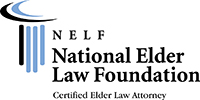Every once in a while, I make a point to report on an important court decision that has a significant impact on estate and trust planning. In the spring of 2018, the Colorado Supreme Court made such a decision in a case by the name of Sandstead-Corona v. Sandstead (“Sandstead”). The ruling by the Court greatly expanded a probate court’s jurisdiction or control over property that would normally pass outside of probate such as joint tenancy accounts, payable on death accounts and other property or accounts with a specific beneficiary designation. Prior to Sandstead, it was very clear that a joint account, payable on death account, or a beneficiary designation passed outside of probate and the terms of the Will and went directly to the surviving joint tenant or designated beneficiary.












